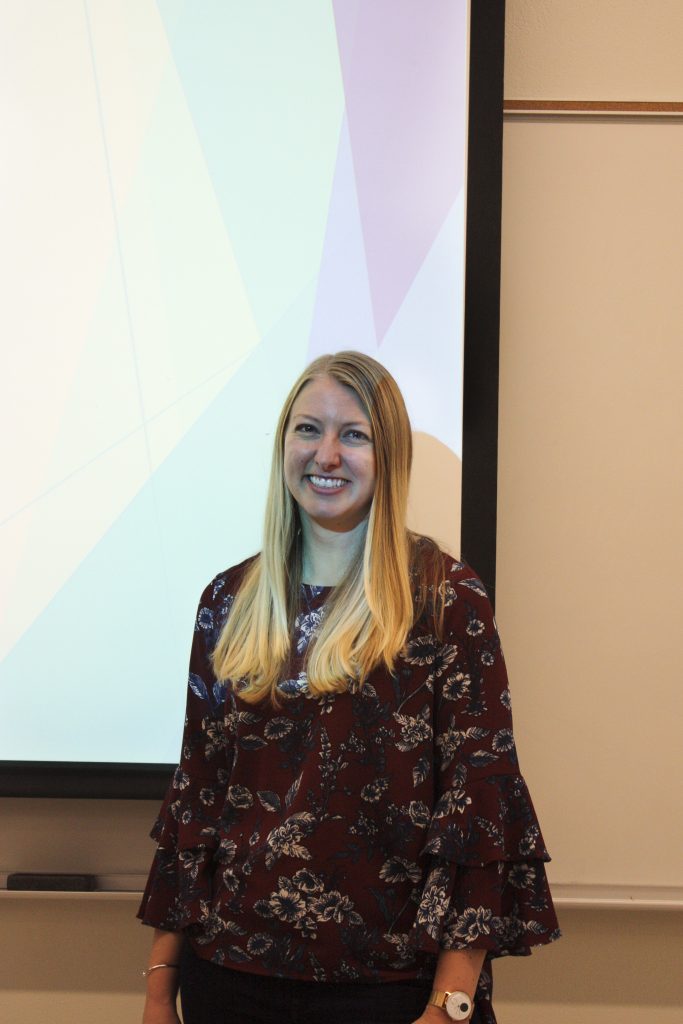
Sage Kiernan-Sherrow | News Editor
“The skills that I’ve learned in getting a degree in chemistry have really helped me know how to break down problems into smaller pieces,” said Valerie Rippey, representing the first speaker for Western’s FEM in STEM series on Monday, November 4. Currently, Rippey is a Product Manager in an interior design company, where she uses her skills of organization and persistence — which she gained through her STEM education — to succeed and inspire future generations of STEM graduates.
In 2017, Breeann Flesch, an associate professor of computer sciences at Western, organized a lunch with students, faculty and staff who were all in the sciences. The purpose of that lunch, said Leanne Merrill, an assistant professor of math at Western, “was to just start a conversation and create a community.” The meeting led to an interest in having an organization which supports women in STEM majors at Western, and after obtaining a WOU Foundation grant for that specific purpose, the FEM in STEM speaker series was established.
According to Western’s website, “FEM in STEM works on the Western Oregon University campus to connect and support female, non-binary, and other underrepresented and ally students in STEM fields. Our focus is on education, support, and community connection to tangible STEM role models who have a variety of careers and career paths.”
“I think a lot of students at WOU are interested in Med school or grad school, but then there’s some who just want a bachelors degree and don’t necessarily want to continue on in academia,” said Merrill, regarding the importance of Rippey’s representation as someone who did not necessarily continue on in their field of study.
However, the importance of FEM in STEM connections go beyond portraying the impact of STEM fields on career choices; Merrill affirms that, “women (and femmes) seeing other women in positions of power, leadership, and success is really useful,” and “gives people tangible role models.” This is important because while, “a lot of progress has been made … the fact is that there is still a gap in achievement at the post-grad level and beyond,” said Merrill, referring to the fact that more than 50% of Biology majors are women but don’t progress throughout their career as an example.
Currently, the FEM in STEM series is set to host a minimum of one speaker per term, but there have been “discussions about having panels … and tentative plans for a peer-mentoring system and bigger-name speakers” in the future, according to Merrill, who also wanted to stress that these events are geared toward a general audience.
“We are particularly excited to see male colleagues and male student allies at these events … part of changing the culture is teaching people to be better allies,” said Merrill, who concluded by saying “everyone can benefit from this.”
Contact the author at howlnews@wou.edu
Photo by Sage Kiernan-Sherrow

